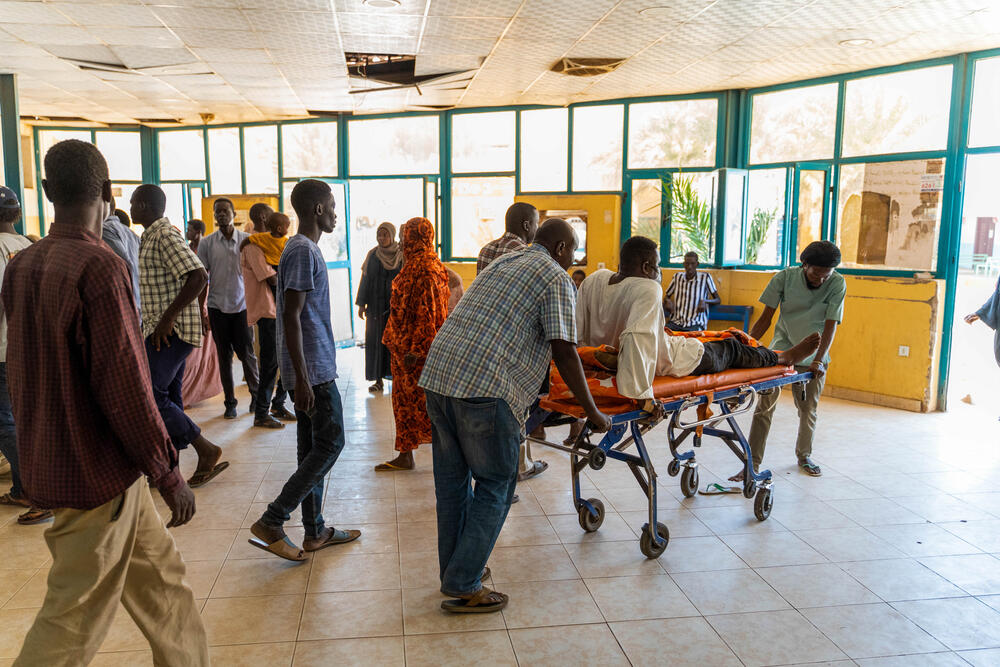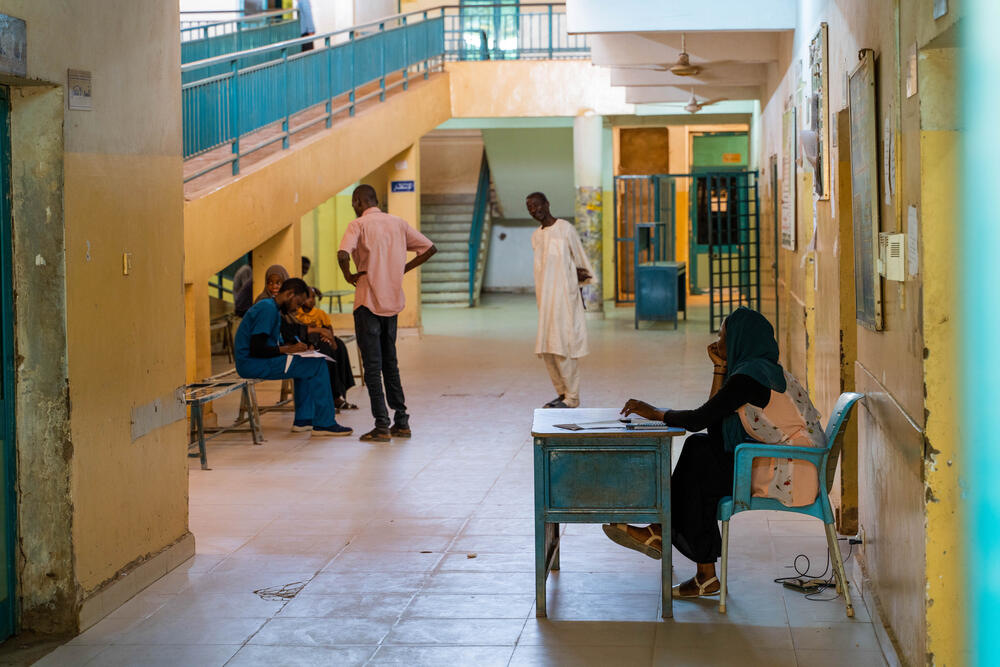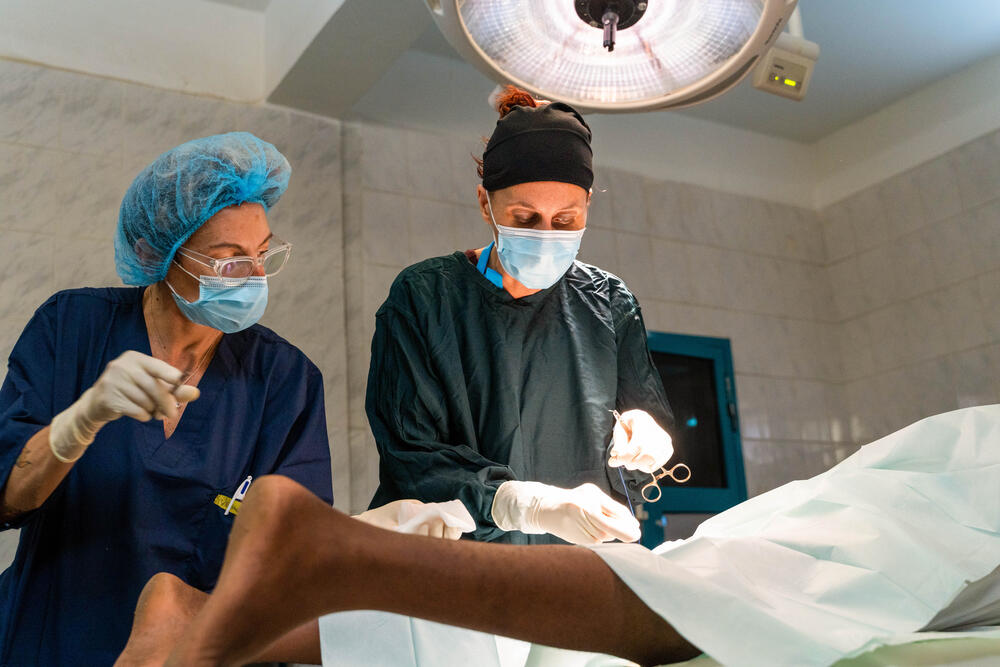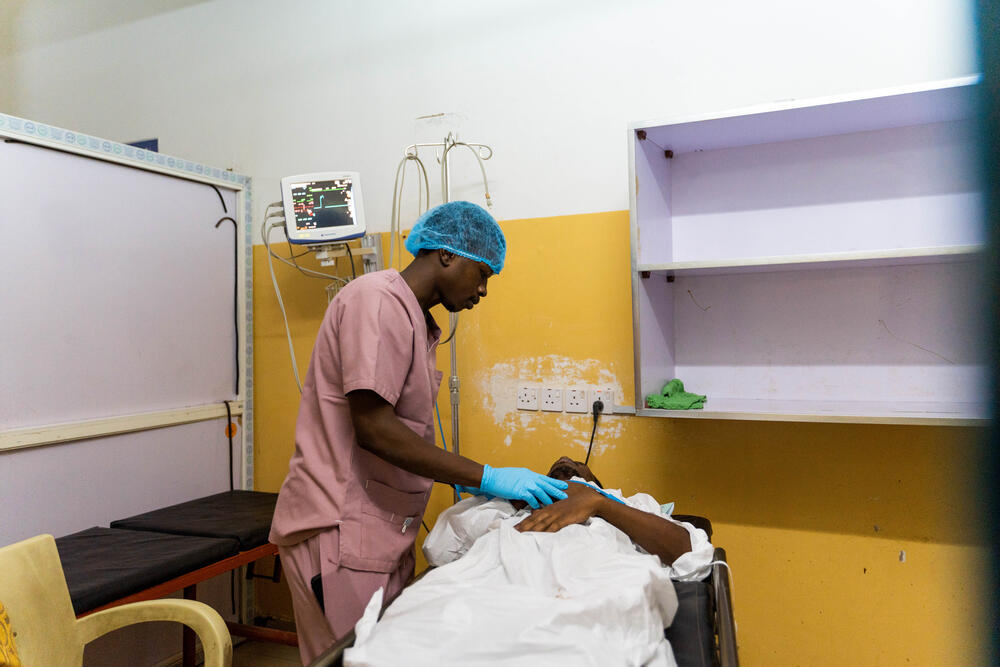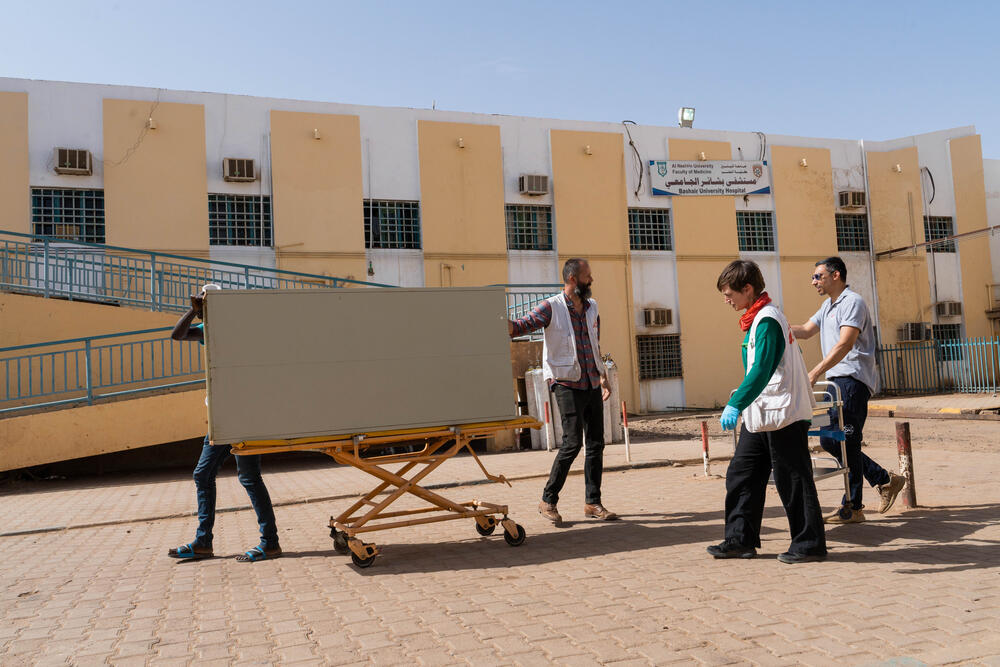Sudan: 240 trauma patients treated in Khartoum in a week
18 May 2023
Khartoum/Brussels
An MSF team working alongside Sudanese staff and volunteers in one hospital in south Khartoum has treated 240 trauma patients in just over a week. Many of them have suffered gunshot wounds or injuries resulting from explosions, consistent with ongoing airstrikes and shelling in the built-up areas of the capital.
Since intense fighting broke out in the Sudanese capital Khartoum on 15 April 2023, and spread rapidly to other parts of the country, hospitals and health facilities have struggled to keep operating. Some have been badly damaged. Others are facing staff shortages after people fled or struggled to move around the city. The Bashair Teaching Hospital in south Khartoum was forced to close completely for a time.
"Doctors and nurses but also young people from the community made the decision to try to restart this hospital after it closed and staff had left for their own safety. When the surgical team reached south Khartoum, we found a hospital where people are really working as hard as they can and taking risks. We've joined them hand-in-hand to try to bring healthcare and lifesaving surgical care to the people in this area," said Will Harper, MSF Emergency Coordinator.
"When we arrived, the situation was chaotic," added MSF Doctor, Hisham Eid. "The hospital was not operational. A few doctors and volunteers were doing their best to attend to the big number of patients despite the shortage of all forms of supplies including electricity. It is getting better now and we are able to attend to many patients efficiently."
Since the MSF team started working in the hospital on 9 May, more than 240 surgical procedures have been performed, among them around four major procedures of the day. Complex and critical cases make up a significant proportion.
"When we arrived, the situation was chaotic."
"We have seen multiple patients with gunshot wounds and stab wounds who are highly critical and would not survive without surgery," said MSF Surgeon Shahzid Majeed. " These injuries were to the chest , to the abdomen, to the liver, to the spleen, to the kidney, to the intestine. We've also performed vascular reconstructive surgery here, without which the patients would have died or would have lost a limb."
Making sure that the surgical team and other medical professionals have the right supplies to keep providing life-saving medical care is difficult. MSF and other organisations have been donating medical supplies to hospitals in Khartoum and other areas from stocks already in the country. But delays getting supplies into Sudan and to the areas where they are most needed- both logistical and administrative- are a serious challenge. Fuel to run generators is a major concern, as electricity supply is intermittent at best.
"Fuel to run generators is a major concern, as electricity supply is intermittent at best."
"We've been able to increase the quality of care and we've already been able to build some capacity within the volunteers and the staff here. We've done multiple major surgical interventions already- complicated surgeries- because of the violence. But also increasing our post-operative care, infection control, all of those things that are a challenge in any day-to-day hospital and they're especially a challenge when we have limits on our water, on our electricity, on our medical supply," said Will Harper, MSF Emergency Coordinator.
With no end in sight to the conflict, more supplies and more medical staff need to reach areas, the areas of greatest need to ensure that people living through and injured as a result of the violence have access to life-saving medical care.
The surgical activities in Khartoum are one of several projects MSF is currently running in Khartoum, North Darfur, West Darfur, Central Darfur, Al-JAzeera, Blue Nile, Al-Gedaref states, including running and supporting hospitals and clinics, running mobile clinics, providing non-food items, and doing water and sanitation activities. MSF is committed to remaining in Sudan and continuing to provide medical and humanitarian assistance to people affected by this crisis.
